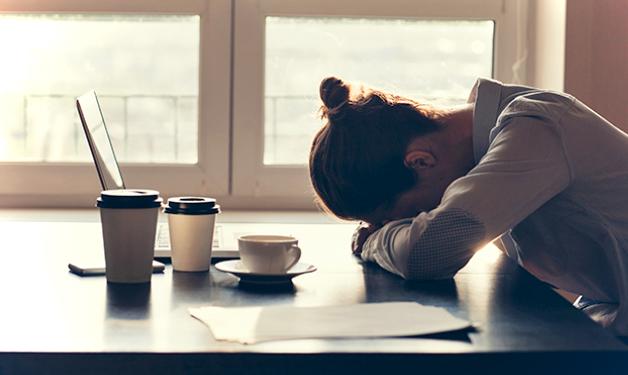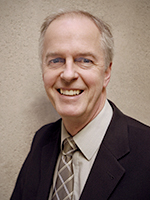
Sleep expert Dr. John Fleetham breaks down what you can do to feel more well-rested and alert.
Sleep is vital to a healthy mind and body, yet many of us have trouble getting enough of it—leading to sick days, mood swings and reduced productivity. Respirologist and Vancouver Coastal Health Research Institute (VCHRI) scientist Dr. John Fleetham recommends making sleep a priority to avoid heavy eyelids and nodding heads.
Q: I am feeling grumpy and foggy every Monday morning. Is lack of sleep the cause?
A: Absolutely, yes. Poor sleep can lead to poor health. If you do not sleep well, you have trouble concentrating, reduced memory and increased irritability. You are also more prone to infections and occupational and motor vehicle accidents. Lack of sleep also leads to a greater risk of weight gain, developing Type 2 diabetes and a decreased life expectancy. The secret to happiness and workplace productivity lies in a good night’s sleep.
Q: Is one night of good sleep each week enough?
A: No. The key to a long and happy life is a healthy diet, regular exercise and getting enough sleep. We hear a lot about diet and exercise, but not enough about the importance of sleep. It has been clearly shown that adults should get between seven and eight hours of sleep. If you sleep less or more than that, studies show your life expectancy is lowered. You should aim for seven to eight hours every night.
Q: Is it okay to drink coffee to stay awake when I am feeling tired?
A: Caffeine—found in coffee, tea and chocolate—is a stimulant that also has other side effects. If you need caffeine to stay awake, this might point to poor sleep or an underlying sleep disorder. Caffeine in the morning is okay, as long as it does not interfere with sleep that night. However, if you are consuming caffeine and are not able to sleep seven to eight hours, it could be doing more harm than good—or an undiagnosed sleep disorder may be preventing you from getting enough rest.
For most people, it is wise to avoid caffeine after midday if you have trouble with your sleep.
Q: Would going into work a bit later help me stay more alert during the day?
A: The best thing is to get up at the same time every morning. The problem is that people change their routine on weekends and go to bed later. Then, on Monday morning, they have to change their sleep habit and get up earlier than they are used to from the previous days. It is important have a regular sleep routine in which you set your alarm for the same time every day, including on weekends, and go to bed early enough to get seven to eight hours of sleep.
Q: How can I catch up on lost sleep and make sure I get a good night’s sleep?
A: It is important to develop good sleep hygiene. This means building routine and fostering habits for a better night’s rest, including:
- banning blue light from electronics in the bedroom
- reducing noise in your sleeping area
- avoiding naps during the daytime
- doing neutralizing activities—such as reading a book—before bedtime
- avoiding scary entertainment—such as a horror film—before going to sleep
- using an appropriate pillow to reduce back pain
- using a mattress protector to avoid breathing in allergens from dust mites
- reserving the bedroom for sleep and sex
- exercising in the morning instead of the evening
- avoiding eating late in the evening
- reducing alcohol consumption
- keeping pets off the bed
- using sleep aid medication very cautiously
Q: What can employers and employees do to make it easier for everyone to get enough rest?
A: They should make sleep a priority. Professional hockey teams have sleep consultants to help their players adjust to frequent schedule changes and different time zones, as players travel to different cities for games. Other organizations should borrow from this and make sleep a higher priority for their employees by scheduling workers in a way that is more sleep-friendly and makes it easier for workers’ bodies to adjust.



